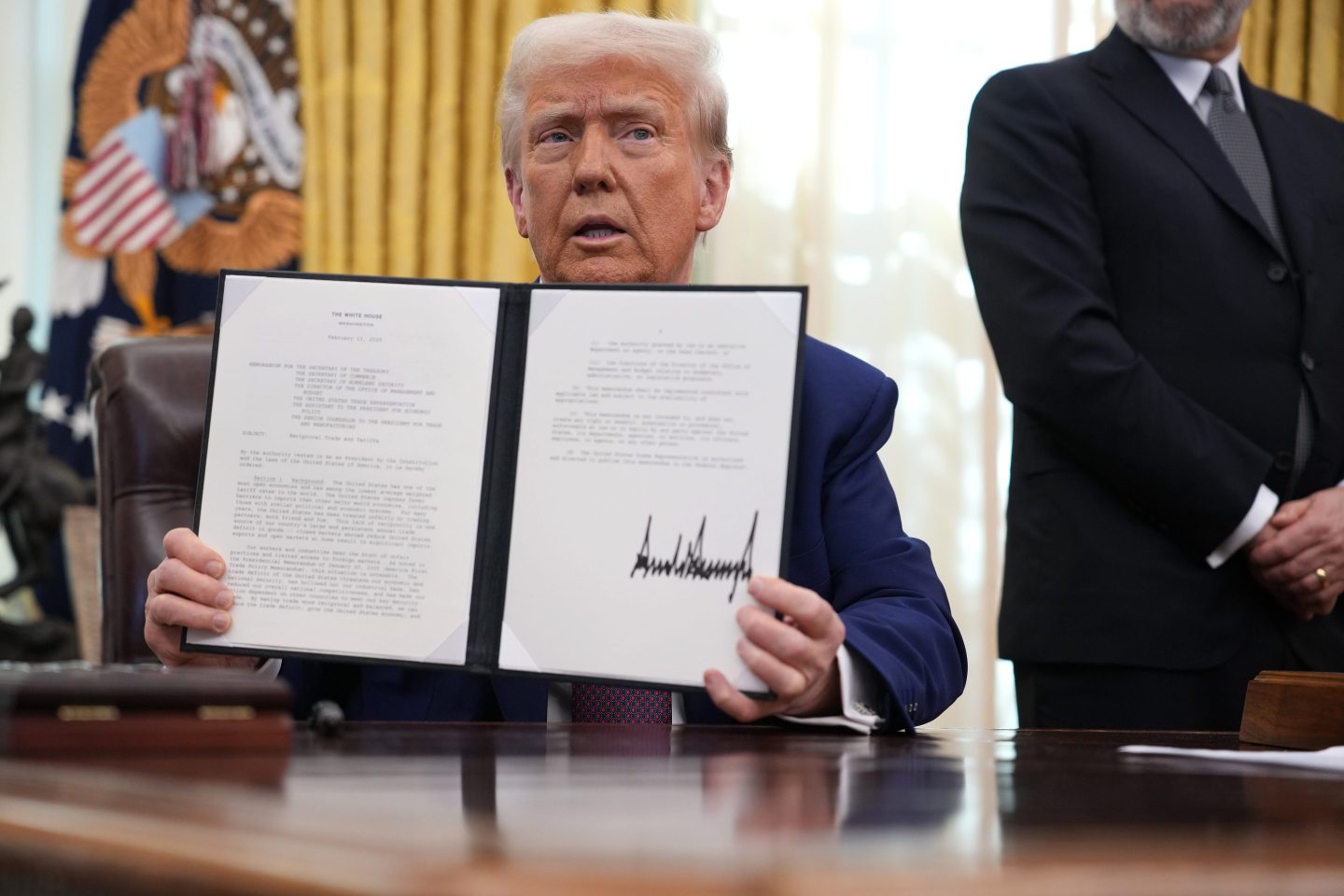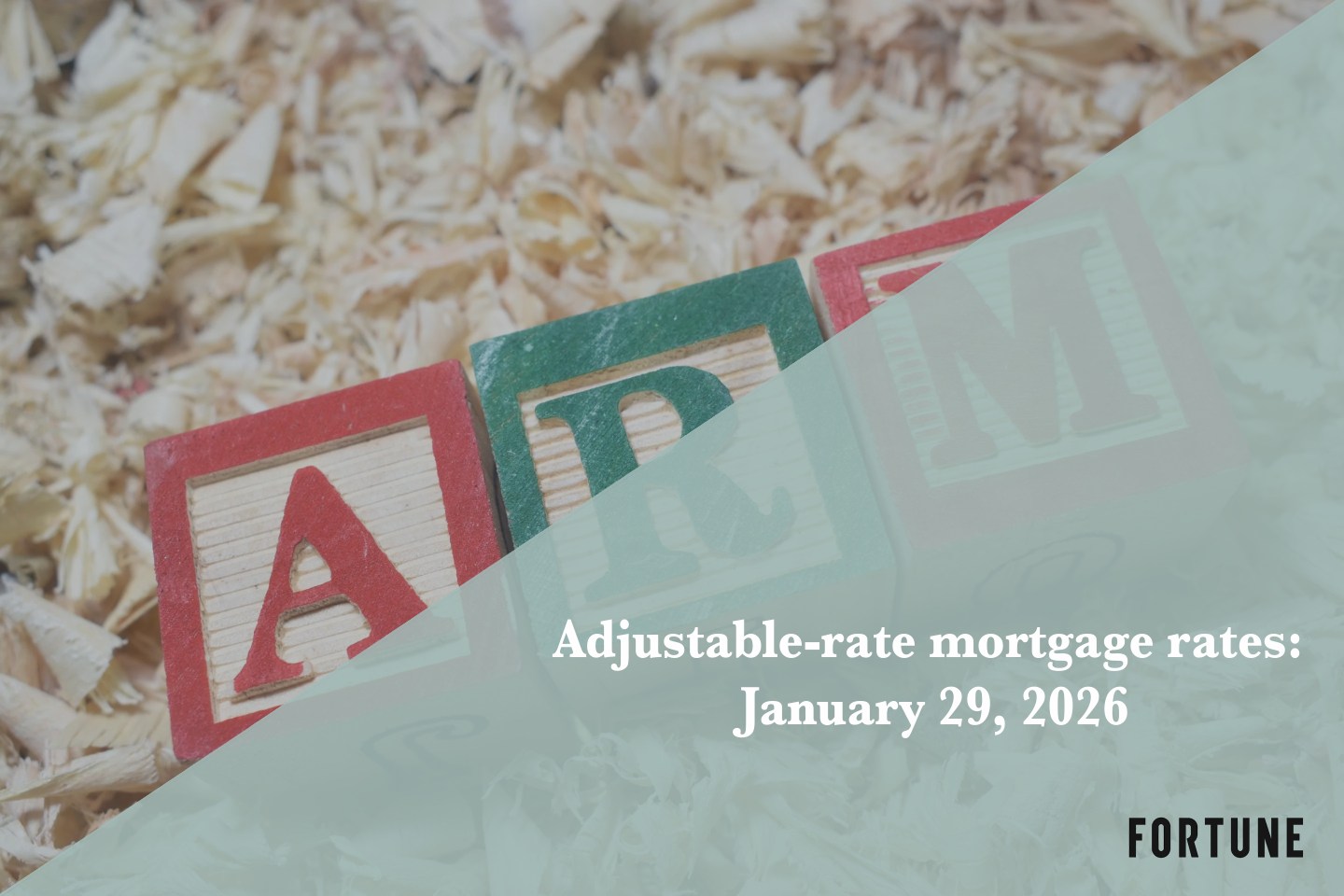President Donald Trump wants Europe to buy American stuff again. On Thursday, the president ordered economic officials to develop custom “reciprocal tariffs” for each of America’s trading partners based on supposed barriers to U.S. Exports.
He’s made clear that includes value-added taxes, or VATs, which is the way most countries—including the entire rich world apart from the United States—taxes consumption.
Still, Trump blames the VAT for the U.S. Trade deficit with the European Union, which hit $236 billion in 2024, according to the Census Bureau, second only to China.
“A VAT tax is a tariff,” Trump told reporters Thursday.
That’s not true. A tariff is a tax on imports, while the VAT is simply a tax on all domestic consumption, regardless of where the good or service is produced. In the end, the only major difference between a value-added tax and a sales tax is the way in which it’s collected.
While a sales tax is paid in full by the consumer at the point of sale, a value-added tax is collected as the product moves through the supply chain. To borrow an example from the Wall Street Journal, say a German bike maker buys steel and aluminum for €50 and sells the finished bike to a shop for €80. The shop is charged a VAT on that €30 difference, reflecting the value the bike maker created; then, when the customer buys the bike for €100, the consumer pays a tax on that €20 increase in value thanks to the retailer.
Ultimately, the final cost—or economic burden, to be more precise—is borne by the consumer. Value-added taxes are generally considered administratively superior, however, because they create a natural audit trail that discourages tax evasion. Most countries have found a sales tax is practically unenforceable above 10%, according to the Tax Foundation, as both buyers and retailers have greater incentive to avoid the tax or keep revenues, respectively.
It’s no coincidence the sales tax in all U.S. States falls below that threshold. In the EU, though, the average VAT across the 27-nation bloc was 21.5% in 2023, according to calculations by ING cited by Bloomberg.
Trump fixated on trade deficit
This isn’t the first time the U.S. Government has had a problem with VATs, however. For decades, American officials have complained about how European companies get a rebate on exports sold in the U.S. That means German carmakers, for example, receive a refund for the VAT they pay on inputs to make cars that sell outside the European Union.
However, a similar regime also exists in the U.S., Sean Bray, vice president of global projects at the Tax Foundation, told the Wall Street Journal. After all, a prohibition on taxing exports is enshrined in Article I of the U.S. Constitution.
Trump’s memo on Thursday, however, bemoaned America’s trade deficit in goods with the rest of the world, which grew 14% last year to a record $1.2 trillion, per the Census Bureau. While foreign spending on travel in the U.S., as well as on telecommunications and financial services, helped drive U.S. Exports to a new high of $3.2 trillion, sales of cars, auto parts, and consumer goods slowed.
Is the VAT to blame, though? The United Kingdom, no longer a member of the EU, has a value-added tax of 20%. The U.S. Still maintains an $11 billion trade surplus with Britain, according to the Census Bureau.
Of course, Trump’s latest tariff threat could mostly be a bid for leverage. The April deadline for officials to come up with a plan for these reciprocal tariffs leaves plenty of time for negotiations, and Trump’s memo referenced the agreements the U.S. Reached with Mexico and Canada last week to delay a 25% tariff on both countries. The memo’s final section was titled “The Art of the International Deal,” a reference to Trump’s 1987 memoir.












